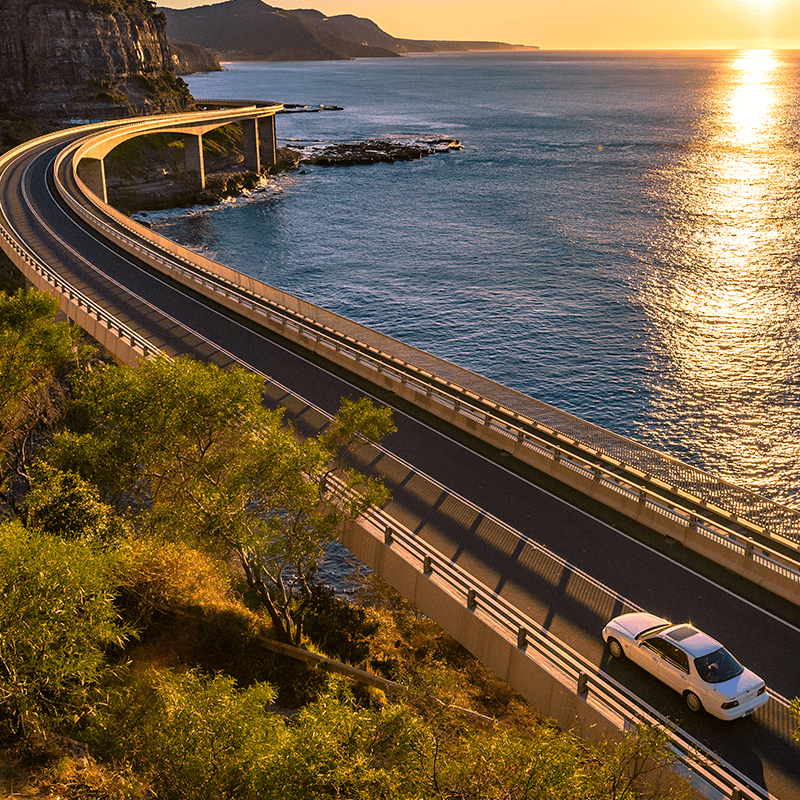How Aussies are planning their Easter road trips
Planning a getaway over Easter?
With four days off work, there’s no better time to hit the road with family or friends.
Australia is teeming with scenic drives and every major city offers a wealth of stunning destinations merely within a few hours of driving, be it of the ocean, mountains or vineyards.
But before hitting the road, it’s important to be wary that Easter is one of the most busiest periods of the year for a long drive.
“With high traffic volumes increasing the potential for accidents and costly demerit point penalties, precaution and proper planning before an Easter getaway should be taken into consideration,” says QBE National Product Manager Private Motor, Dennis Woon.
However, new recent research commissioned by QBE Insurance1 has revealed Australians are prioritising snacks over safety as part of their planning before they hit the road for a long drive or getaway.
Aussie’s prioritise snacks over safety in road trip planning
Only 39% Aussie’s check their spare tyre and 44% plan their rest stops; while 67% ensure they’ve packed snacks for the journey.
For Woon, car safety, general maintenance and planning stops before a long road trip is integral to the safety of drivers, passengers and other people on the road.
He says that, it’s ideal to stop and stretch your legs or get some fresh air for at least 10 or 15 minutes every two hours, so planning your stops is as important as planning the route of your journey.
“It means that you plan better for your safety. It’s at stops like these that you can plan to take a break and recharge before continuing to drive. Fatigue is extremely dangerous on the road,” says Woon.
QBE’s research also revealed a lack of planning regarding staying entertained for the journey. Only 33% of Australian’s plan a driving music playlist and 23% pack toys and games for the kids.
These findings are concerning based on the results of the Australian Naturalistic Driving Study, which found drivers were distracted 45% of the time behind the wheel. This research also found that driver distraction is the cause of about 16% of all serious crashes.
“These findings are concerning as having pre-planned music playlists or podcasts and entertainment – particularly if you’re travelling with kids - is certainly one way to overcome distraction for the duration of the journey,” says Woon.
Every 96 seconds a driver was distracted by something other than the road ahead, a progress report on the Australian Naturalistic Driving Study found.
“So, changing the radio station, fiddling with the GPS, or even dealing with back seat squabbles can have devastating consequences, though these distractions may seem insignificant. If you’ve planned to keep the kids busy and have a set music playlist or podcast for the trip, it may alleviate the temptation to be distracted in the car by those little things.”, he adds.

The short or scenic route?
Part of planning your road trip is getting not only the route right, but the timing. \
During the Easter period, with the Thursday evening exodus, you can expect serious gridlock with the usual commuters heading home paired with families and friends escaping early too.
It may be worth considering leaving after peak hour on the Thursday later than usual or deciding to drive very early on Friday morning.
Part of the driving journey can also be choosing the scenic - albeit longer - routes that will divert you from highways and therefore traffic.
“It may be quieter and safer on these roads, and potentially more beautiful. On the scenic route, you can come across the little things often overlooked, such as an interesting lookout or vantage point, or great local food, particularly in parts of Australia that have farm gates, offering their local produce,” Woon says.
Crossing state borders? Know the road rules that apply

Road rules in Australia vary from state to state, so be sure to understand the different rules that apply if you’re driving in a different state than your home, reminds Woon.
If your journey crosses state borders, read up on the road rules before you drive the car.
These links can help:
Double demerit points is just one example.
If you’re travelling in New South Wales (NSW), Australian Capital Territory (ACT) or Western Australia (WA) over the Easter holidays, double demerit points apply to all drivers.
Double demerits will be in place for eight days during the April holiday period from Thursday, April 18 to Monday, April 22 for the Easter period and will apply again for Anzac Day on Wednesday, April 24 to Sunday, April 28.
Double demerit points apply from midnight of the start date to midnight on the finish date.
How double demerit points work
Double demerits apply to drivers who speed, aren’t wearing seatbelts, and mobile phone offences. An additional demerit point applies for all other traffic offences.
If drivers in New South Wales are caught using their mobile phones, they could cop up to 10 demerit points on top of a fine and if they’re not wearing a seatbelt, they could face being penalised with six demerit points and a $337 fine2.
If four or more passengers are found also without seatbelts, this could increase to 12 demerits and $1422. For speeding offences, drivers in New South Wales can expect to be hit with two demerits and a fine of $119, however this could increase to 12 demerits and $2435 depending on the severity of the offence3.
Are you prepared if you need to make an insurance claim?
Preparing for an insurance claim is also important, just in case something goes awry on your road trip.
It’s a good idea to have all the details you need to begin the claims process on hand, starting with the correct phone number to lodge the claim or contact details of your insurance broker or agent.
“A good way to have these key contact details handy is to create a new contact in your mobile phone or bookmark the web address where you can lodge an online claim. It’s also useful to have your policy number on hand,” he says.
1Pure Profile research study of 1,002 Australians aged 18-65 completed for QBE Insurance from 5-6 March 2019
2https://www.news.com.au/technology/innovation/motoring/on-the-road/easter-and-anzac-day-2019-when-do-double-demerits-start/news-story/5e4d787906e0e0a7dc4dffa134a00f18
3https://www.news.com.au/technology/innovation/motoring/on-the-road/easter-and-anzac-day-2019-when-do-double-demerits-start/news-story/5e4d787906e0e0a7dc4dffa134a00f18






